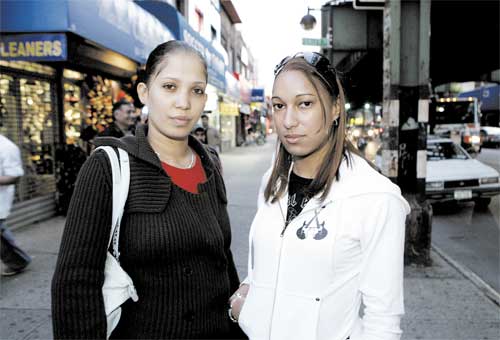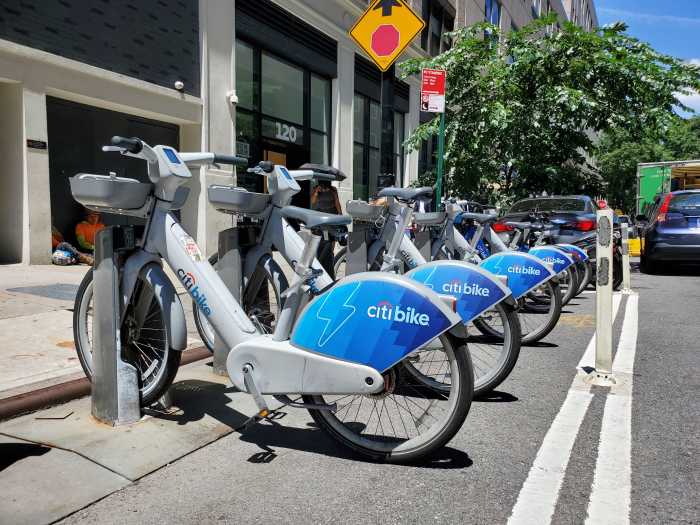By Stephen Stirling and Jeremy Walsh
Former dancers and bar workers who filed a suit against a club on Roosevelt Avenue against what they contend were unfair labor practices upped the ante last Thursday when they gathered to demonstrate.
About three dozen protesters stood outside the Flamingo Club at 85-12 Roosevelt Ave. chanting loudly for about half an hour before police, not aware of the protest plans, arrived in force and ordered them to disperse.
Six current workers at the Flamingo also came out to support their employers, holding signs in Spanish with slogans like “we are bar workers and we are happy.”
One sign read: “We will see who says the truth: 15 thieves and prostitutes or 90 people who do everything by law and maintain 90 families without robbing.”
These workers, all men, did not offer further comment.
A bouncer for the club took photos of everyone who showed up outside, including one bar patron, who came outside and was not allowed back in after the demonstration ended.
The dancers, known as “bailarinas,” are women who take tips to dance with men on the dance floor. The practice is common in bars and clubs underneath the elevated No. 7 train tracks on Roosevelt Avenue.
The dancers and bar workers seek wage compensation, a matching amount for damages and payment of legal fees, according to court papers filed in March in Brooklyn federal court.
The dancers claim the only money they made was the tips from the men they danced with — for $2 per song or $40 per hour, court documents show.
“They would pour drinks on us,” said America Gonzales, who danced at the Flamingo for two years, referring to the club's owners Luis Ruiz and Edith D'Angelo. “We suffered a lot of humiliation.”
But she said she understood the situation of those who still dance there.
“I know they need the work and they suffer through that because they need the money to support their families.”
Floricelda Alonzo, who danced at the Flamingo for one year, said she had to pay $10 to get through the door at work and $70 if she had to take a sick day.
“I want these workers to change,” she said of the bar's current employees. “I want them to know you don't have to beg to go to work. We're human beings.”
Organizers with Make the Road New York, which helped file the suit, said they want the treatment of bar dancers to improve.
“It's not just a lawsuit,” said Make the Road spokeswoman Irene Tung. “We're going to be back out here to tell them what they're doing is wrong. We're going to be back as many times as we can and as long as we can until they make a change.”
Reach reporters Stephen Stirling and Jeremy Walsh by e-mail at news@timesledger.com.

































